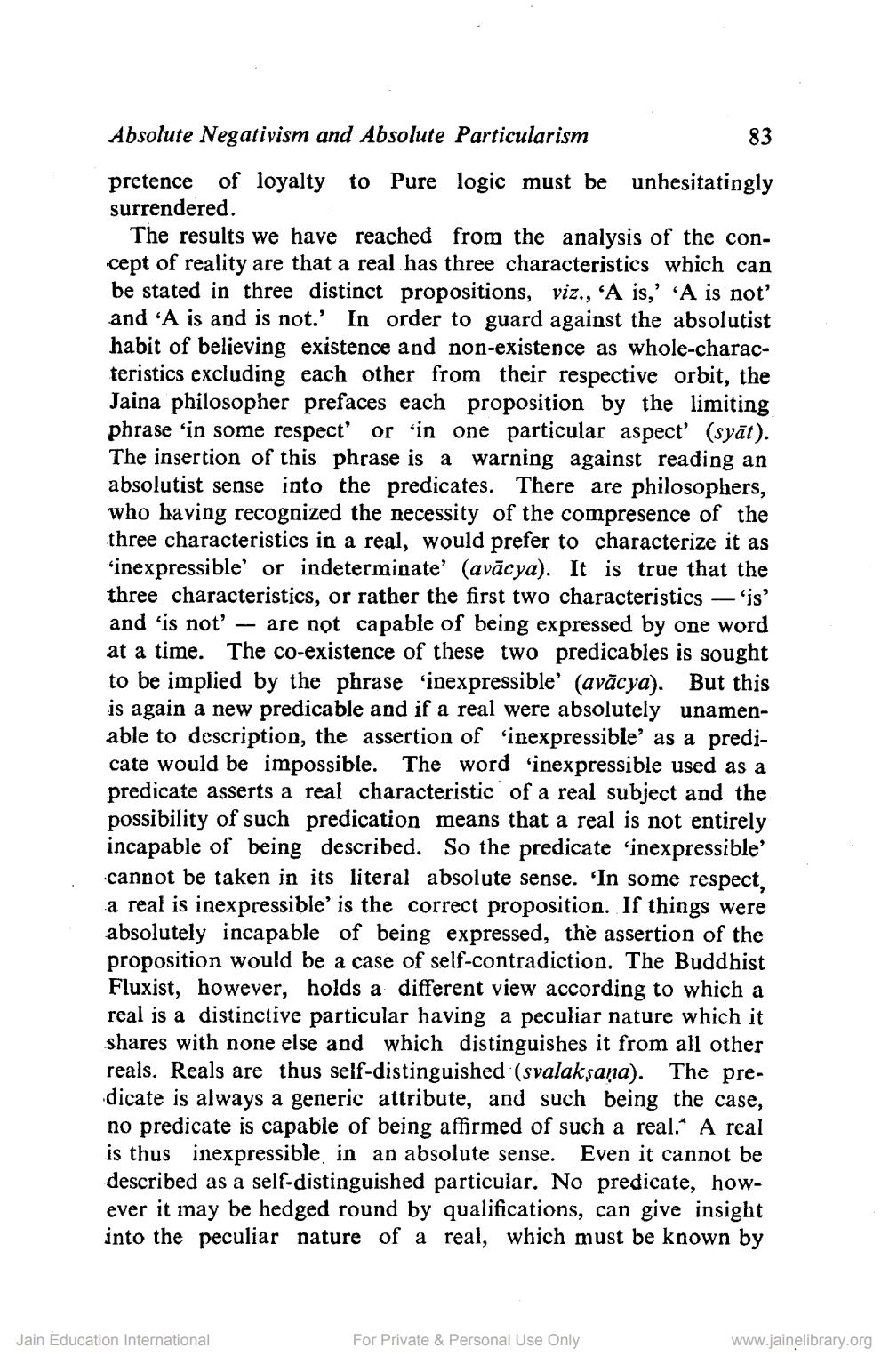________________
Absolute Negativism and Absolute Particularism pretence of loyalty to Pure logic must be unhesitatingly surrendered.
The results we have reached from the analysis of the concept of reality are that a real has three characteristics which can be stated in three distinct propositions, viz., 'A is,' “A is not and 'A is and is not.' In order to guard against the absolutist habit of believing existence and non-existence as whole-characteristics excluding each other from their respective orbit, the Jaina philosopher prefaces each proposition by the limiting phrase 'in some respect' or 'in one particular aspect' (syāt). The insertion of this phrase is a warning against reading an absolutist sense into the predicates. There are philosophers, who having recognized the necessity of the compresence of the three characteristics in a real, would prefer to characterize it as inexpressible' or indeterminate' (avācya). It is true that the three characteristics, or rather the first two characteristics — 'is' and 'is not – are not capable of being expressed by one word at a time. The co-existence of these two predicables is sought to be implied by the phrase 'inexpressible' (avācya). But this is again a new predicable and if a real were absolutely unamenable to description, the assertion of 'inexpressible' as a predicate would be impossible. The word 'inexpressible used as a predicate asserts a real characteristic of a real subject and the possibility of such predication means that a real is not entirely incapable of being described. So the predicate 'inexpressible' cannot be taken in its literal absolute sense. 'In some respect, a real is inexpressible' is the correct proposition. If things were absolutely incapable of being expressed, the assertion of the proposition would be a case of self-contradiction. The Buddhist Fluxist, however, holds a different view according to which a real is a distinctive particular having a peculiar nature which it shares with none else and which distinguishes it from all other reals. Reals are thus self-distinguished (svalak şaņa). The predicate is always a generic attribute, and such being the case, no predicate is capable of being affirmed of such a real." A real is thus inexpressible, in an absolute sense. Even it cannot be described as a self-distinguished particular. No predicate, however it may be hedged round by qualifications, can give insight into the peculiar nature of a real, which must be known by
Jain Education International
For Private & Personal Use Only
www.jainelibrary.org




